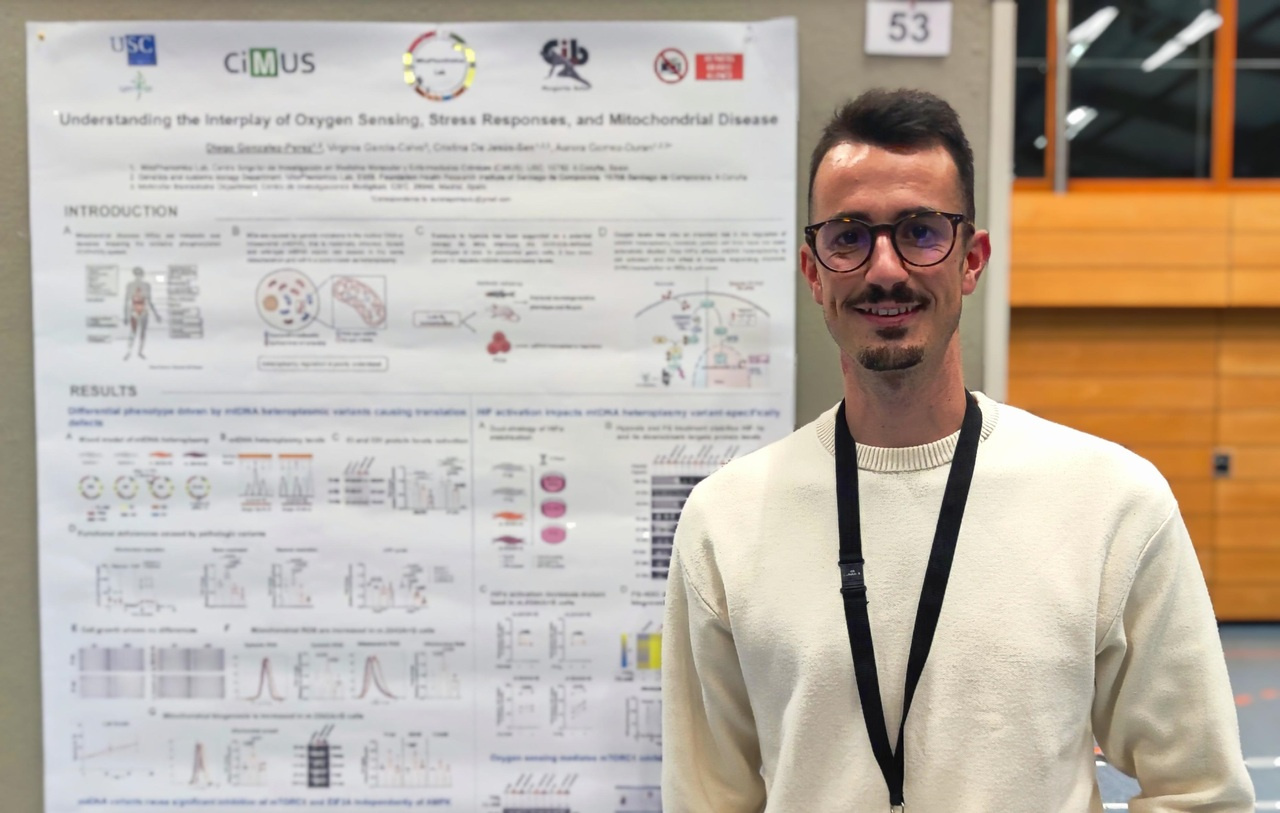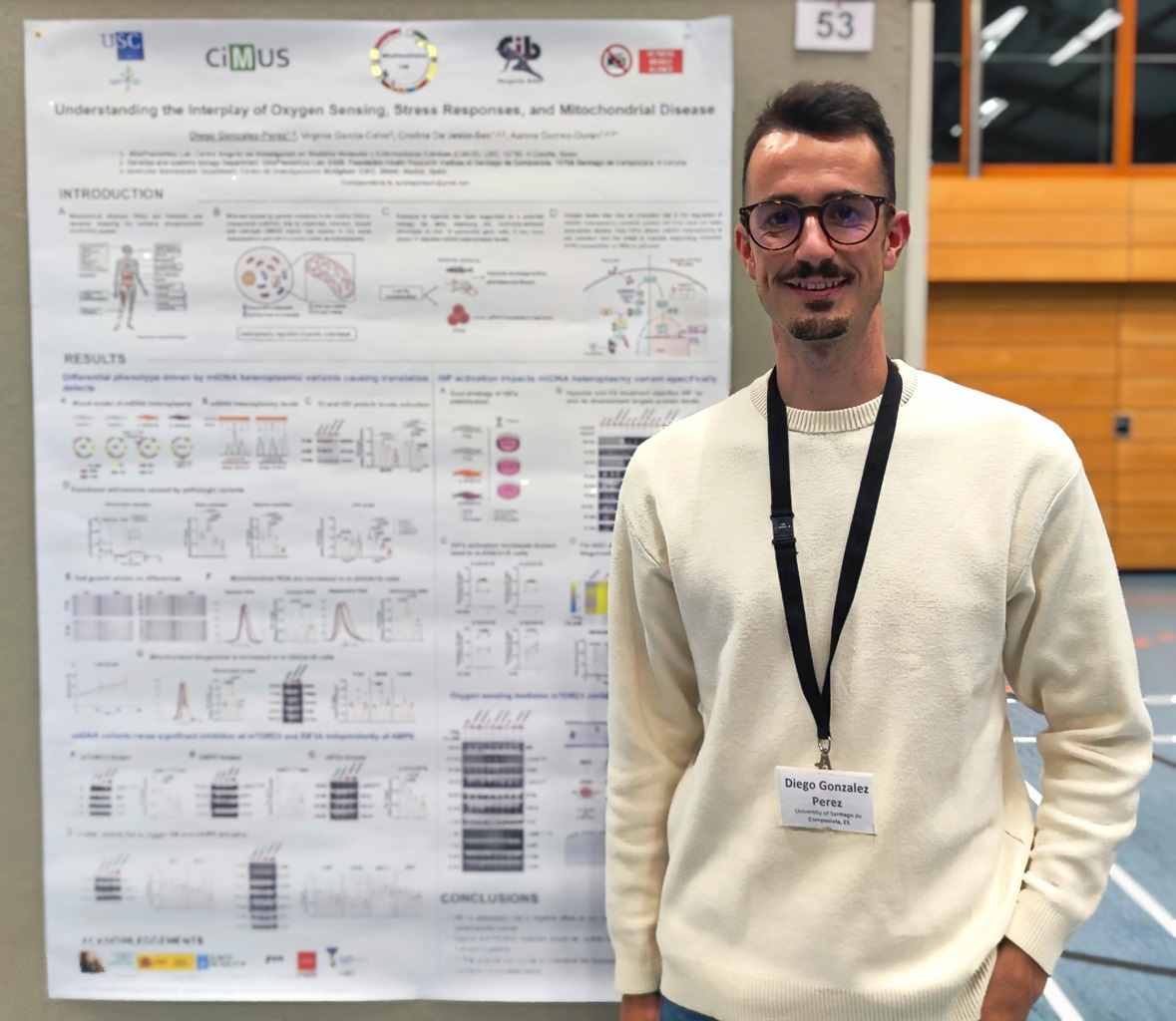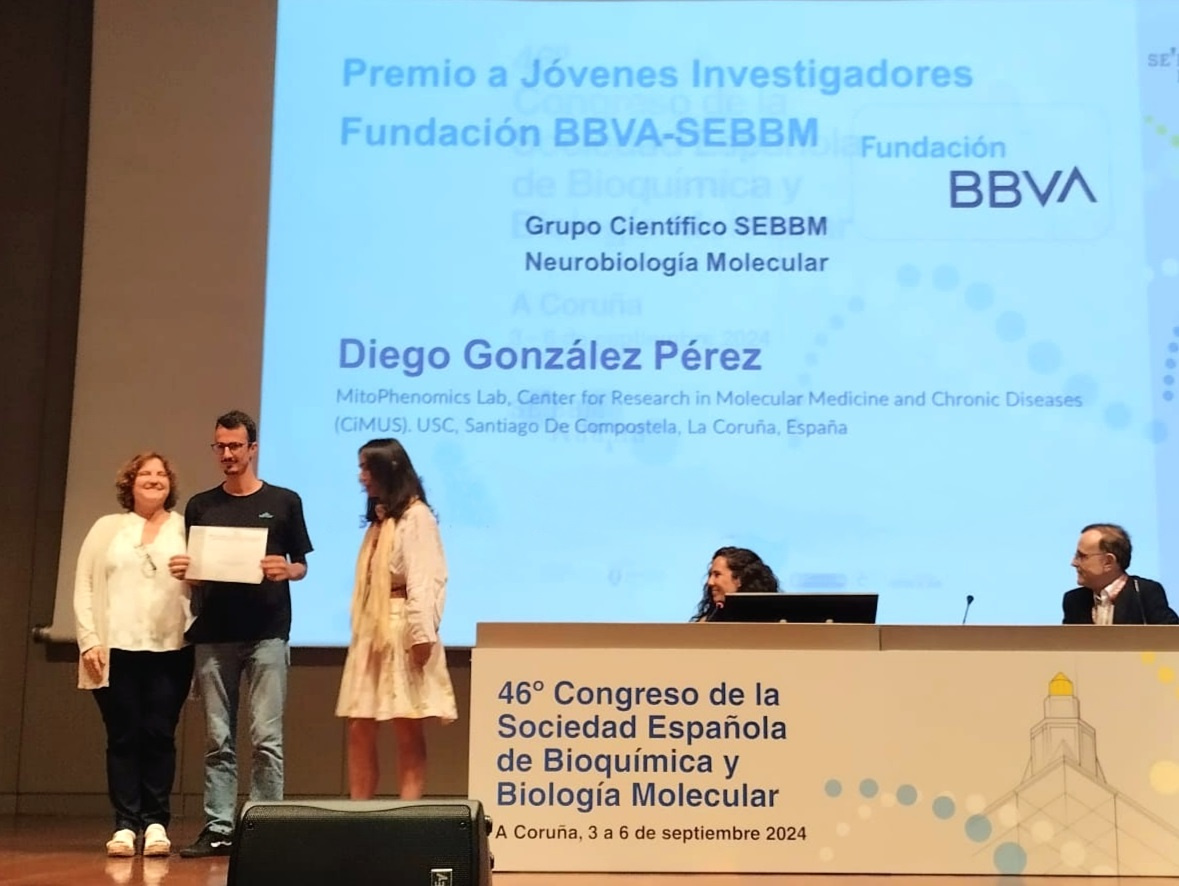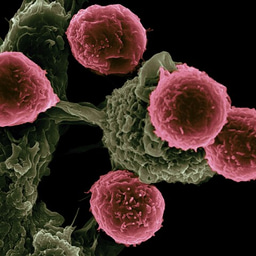"It’s not every day you get to exchange ideas with leaders in your area of study"

My name is Diego González Pérez, and I am in my second year of the PhD at CiMUS (University of Santiago de Compostela, Spain) in the MitoPhenomics Lab, led by Dr. Aurora Gomez-Duran. My journey to attending the Joint FEBS/EMBO Lecture Course 'Mitochondria in life, death and disease' (16–20 September 2024, in Germany) began when a colleague mentioned it to me after seeing it on the EMBO website. Intrigued, I visited the website and discovered the FEBS Advanced Courses and FEBS Young Travel Funds grants. I applied and, to my surprise, was awarded the fellowship.
The conference was an invaluable experience. I had the privilege of listening to top scientists in the field, such as Michal Minczuk, Alena Zikova, Nils-Göran Larsson, Erika Fernández-Vizarra and Marta Artal Sanz, among many others. One of the greatest advantages of attending a field-specific conference like this is the opportunity to gain new insights into areas of mitochondrial research that I was less familiar with. These fresh perspectives have opened my mind to new aspects that may play a pivotal role in my current project. Additionally, the conference was held entirely in one venue, which fostered constant interaction among attendees. This setup made networking effortless, allowing me to connect with other researchers and engage in meaningful conversations throughout the event. One of the most exciting moments for me was during the poster session, where I had the chance to discuss my research findings with experts in the field. Engaging in these discussions with renowned scientists was fascinating: it’s not every day you get to exchange ideas with leaders in your area of study.
On a personal level, attending the conference alone was a challenge, as it pushed me to step outside my comfort zone and actively socialise with other researchers. This experience not only helped me to improve my social skills but also allowed me to connect with other scientists.
This summer, I also had the opportunity to attend another major event, the 46th SEBBM Congress, from the Spanish Society for Biochemistry and Molecular Biology, which is a FEBS Constituent Society. This congress was much larger than the course, with a broader range of topics covered. I had the honour of presenting my research through a short talk, and I was fortunate to receive one of the BBVA Foundation-SEBBM awards for young researchers. This award, valued at €1,500, was not only an important recognition of my work but also a great motivator to continue pushing forward with my research.
Regarding my academic background, I am originally from Seville, where I graduated in Human Nutrition and Dietetics from Pablo de Olavide University. Later, I pursued an MSc degree in Nutrigenomics and Personalised Nutrition at the University of the Balearic Islands, which is when I had the opportunity to join Dr. Gomez-Duran’s laboratory for my MSc’s thesis. This experience introduced me to the fascinating world of mitochondria and inspired me to pursue my PhD in her lab. This decision embarked me on the adventure of changing the weather to live in Santiago de Compostela (one of the rainiest cities in Spain) and accompany my supervisor, along with the rest of the lab members, in the move and in opening the new lab.
My thesis focuses on studying mitochondrial diseases and how they respond to different metabolic conditions, such as nutrient and oxygen sensing. We use cell cultures derived from patients carrying mitochondrial DNA (mtDNA) variants that cause mitochondrial diseases. We aim to study the impact of nutrient and oxygen sensing pathways on mtDNA heteroplasmy, mitochondrial function and stress responses, with the aim of identifying new molecular mechanisms involved in the pathogenesis of these metabolic rare disorders and contributing to their treatment, as there is currently no cure.
In conclusion, these past few months have been filled with enriching scientific experiences that have allowed me to see my research from new perspectives, recognise the value of my work, and expand my professional network within the scientific community. I have also gained a deeper appreciation for the remarkable research being conducted by scientists from all over the world.
With this post, I would like to encourage early-career scientists, especially PhD students and postdocs to take advantage of the opportunities offered by FEBS courses, conferences and fellowships. These activities are the perfect platform for learning, exploring new horizons, and connecting with researchers globally.

Joint FEBS/EMBO Lecture Course 'Mitochondria in life, death and disease'.

For more information about the FEBS Advanced Courses programme visit the FEBS website.
All images by Diego González Pérez.





Join the FEBS Network today
Joining the FEBS Network’s molecular life sciences community enables you to access special content on the site, present your profile, 'follow' contributors, 'comment' on and 'like' content, post your own content, and set up a tailored email digest for updates.